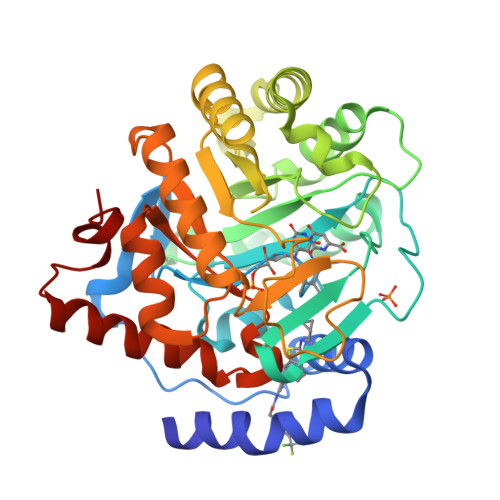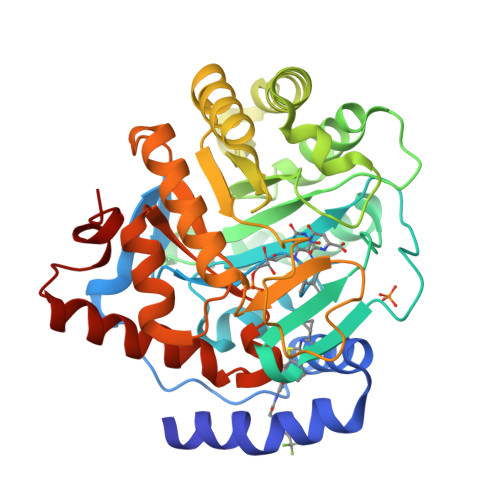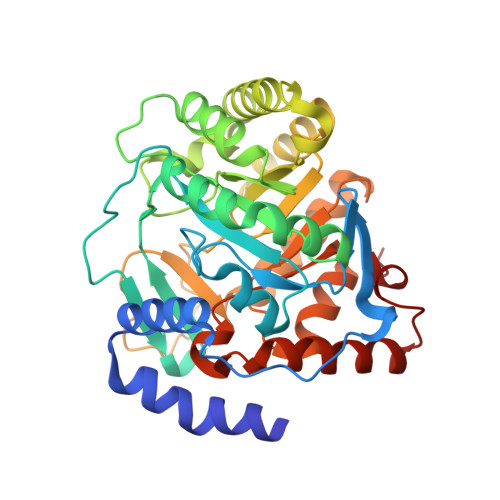Metabolic Modifier Screen Reveals Secondary Targets of Protein Kinase Inhibitors within Nucleotide Metabolism.
Abt, E.R., Rosser, E.W., Durst, M.A., Lok, V., Poddar, S., Le, T.M., Cho, A., Kim, W., Wei, L., Song, J., Capri, J.R., Xu, S., Wu, N., Slavik, R., Jung, M.E., Damoiseaux, R., Czernin, J., Donahue, T.R., Lavie, A., Radu, C.G.(2020) Cell Chem Biol 27: 197
- PubMed: 31734178
- DOI: https://doi.org/10.1016/j.chembiol.2019.10.012
- Primary Citation of Related Structures:
6OC0, 6OC1 - PubMed Abstract:
Biosynthesis of the pyrimidine nucleotide uridine monophosphate (UMP) is essential for cell proliferation and is achieved by the activity of convergent de novo and salvage metabolic pathways. Here we report the development and application of a cell-based metabolic modifier screening platform that leverages the redundancy in pyrimidine metabolism for the discovery of selective UMP biosynthesis modulators. In evaluating a library of protein kinase inhibitors, we identified multiple compounds that possess nucleotide metabolism modifying activity. The JNK inhibitor JNK-IN-8 was found to potently inhibit nucleoside transport and engage ENT1. The PDK1 inhibitor OSU-03012 (also known as AR-12) and the RAF inhibitor TAK-632 were shown to inhibit the therapeutically relevant de novo pathway enzyme DHODH and their affinities were unambiguously confirmed through in vitro assays and co-crystallization with human DHODH.
Organizational Affiliation:
Department of Molecular and Medical Pharmacology, University of California Los Angeles, Los Angeles, CA, USA; Ahmanson Translational Imaging Division, University of California Los Angeles, Los Angeles, CA, USA.




















